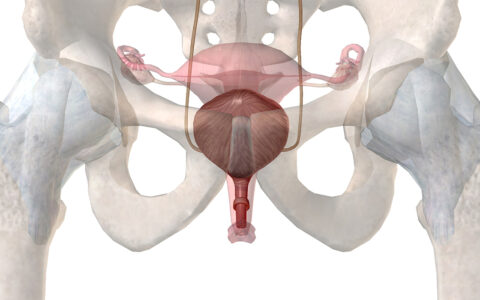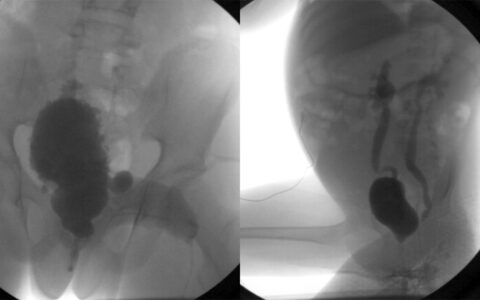Patients with chronic pain can have many comorbidities, and it can be difficult to tease out causal relationships. Psychosocial factors—such as symptoms of post-traumatic stress disorder (PTSD)—can worsen pain symptoms.
The relationship between psychology and pain hinges on central sensitization or amplification of neural signaling contributing to heightened pain, says Lindsey McKernan, Ph.D., clinical psychologist at Vanderbilt University Medical Center.
McKernan studies connections between central sensitization, pain and PTSD—a psychological condition she commonly treats at the Osher Center for Integrative Medicine. McKernan’s most recent research suggests PTSD could underlie a host of pain conditions, and that even urologists and nephrologists should be screening for it.
Searching For A Cause
McKernan began her research after noticing a pattern in her clinic patients. “I noticed in sessions when we’d begin to explore a person’s PTSD, they would have an increase in pain,” she said. “It was an acute, physiological response.”
Studies have investigated how people exposed to trauma experience chronic pain, but few have focused on patients with a distinct stress-related disorder that sometimes results: PTSD. Twenty percent of chronic pain patients have PTSD.
“For these patients, I wanted a better understanding of the link between their trauma reactions and central sensitization,” McKernan said.
“I wanted a better understanding of the link between their trauma reactions and central sensitization.”
A Strong Connection
McKernan studied 202 adult patients with chronic pain, looking for three indicators of central sensitization: widespread pain, elevated pain severity and polysomatic symptoms. The patients also completed validated surveys about their trauma history and current symptoms, to identify those with PTSD.
In results published in The Clinical Journal of Pain, McKernan showed those with PTSD (28 percent of the patients) rated highly on all three measures of central sensitization. Most notably, half of the increases in polysomatic symptoms in these patients were attributable to trauma exposure and PTSD.
“I see this as a justification for the work these patients are putting in to manage their pain,” McKernan said. “They often feel at a loss for what can be done. When we see these strong associations, it indicates an area we can treat.”
PTSD is highly treatable, with validated methods to address symptoms such as hyperarousal or hypervigilance. Said McKernan, “PTSD treatments could, indirectly, help the pain.”
Hope for Bladder Pain
In a separate study published in the journal Neurourology and Urodynamics, McKernan zeroed in on pain associated with interstitial cystitis and bladder pain syndrome, using the same study population.
Dozens of studies have drawn connections between psychosocial factors and interstitial cystitis, but McKernan is the first to specifically study the role of PTSD.
She found an alarming 42 percent of patients with interstitial cystitis or bladder pain syndrome met diagnostic criteria for PTSD. They also had significantly higher rates of lifetime sexual abuse or childhood trauma when compared to others with chronic pain. Interstitial cystitis patients also scored highly on central sensitization inventories.
A Call To Action
The studies highlight the importance of careful screening for PTSD symptoms in patients experiencing chronic pain, McKernan said.
“This doesn’t mean sitting down with patients and talking about their trauma—in fact, that could make their pain worse and would require a lot of time. It would be to ask about the frequency of specific symptoms.”
McKernan recommends the Primary Care PTSD Screen to providers. “It can be a helpful piece of the puzzle.”





